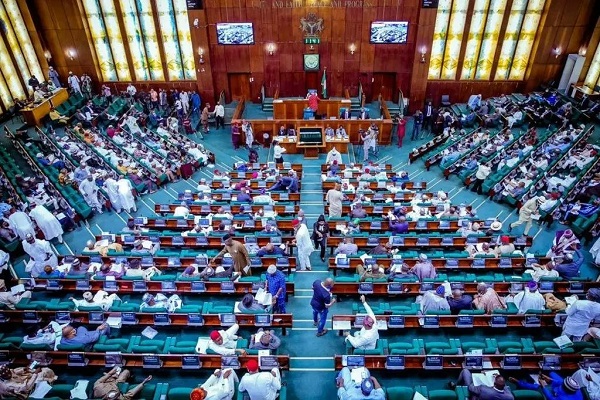…Raises the alarm Food security in Middle East, North Africa is deteriorating***
The UN General Assembly has adopted by consensus another Nigeria-sponsored resolution to promote international cooperation to combat illicit financial flows in order to foster sustainable development.
The resolution, strongly supported by the Group of 77 plus China, was adopted without a vote by all the 193 members of the UN General Assembly.
The resolution built on an earlier one sponsored by Nigeria and similarly adopted by consensus at the 71st Session of the UN General Assembly on Dec. 21, 2016.
It “welcomed the ongoing efforts of Member States to enhance knowledge and broaden understanding of the challenges and opportunities involved with international cooperation to combat illicit financial flows and strengthen good practices on assets return to foster sustainable development”.
This includes “the initiative of Nigeria and Norway to this effect as well as the initiative of Ethiopia and Switzerland on good practices on assets return, and calls upon Member States to continue such efforts”.
At the adoption of the resolution, the Nigerian delegation was led by Mr Bolaji Akinremi, Minister/Spokesperson for the Permanent Mission of Nigeria to the UN.
Akinremi, who regretted the impact of illicit financial flows on Nigeria and the African countries, challenged the global community to repatriate all illicit financial flows from Africa.
He said since the introduction of the resolution at the 71st General Assembly, the delegations of Nigeria and Norway had made efforts to bridge the knowledge gap within the UN on the issue of illicit financial flows.
He stressed that the global community should no longer turn blind eye to this fact which had been well articulated and adopted in several reports.
“Nevertheless, the just adopted resolution has sufficient ingredients to boost international cooperation in preventing and combating illicit financial flows, either those caused by tax evasion, corruption, money laundering or transnational organised crimes.
“In addition, it will strengthen the recovery and return of illicitly acquired assets, with the hope to hasten the realisation of our ambitious 2030 Agenda on sustainable development,” he said.
Akinremi regretted the destabilising effects of illicit financial flows on the development of societies, especially developing countries and the slow pace of the recovery and return of stolen assets.
He warned that proceeds of corruption, tax evasion, transnational bribery and other forms of illicit flows to requesting states, would continue to be “a wound on the conscience of the global community”.
He called for setting up of an intergovernmental body to properly coordinate the various disjointed mandates in different bodies, on the different dimensions of illicit financial flows, and develop appropriate instruments for their recovery and return.
According to him, most developing countries are yearning for this kind of body that would bring relief to the frustration they currently face in combating illicit financial flows.
“It is in recognition of this fact and the need for all hands to be on the deck, that President Muhammadu Buhari has accepted the clarion call to champion the annual theme of the African Union for 2018.
“Therefore, this resolution would serve as a veritable platform for collaboration at all levels, towards achieving this onerous task.
“In conclusion, we wish to reiterate Nigeria’s readiness to contribute its quota, where necessary, towards holding the High-Level Conference on illicit financial flows and assets recovery, to be convened by the President of the 73rd General Assembly”.
To give the required teeth to this resolution and in preparation for the High Level Conference, Akinremi enjoined member states to demonstrate necessary political will to address the seemingly intractable issue of illicit financial flows.
According to him, this can be achieved by sharing information, providing technical assistance and capacity-building to developing countries, to ensure that no one is left behind.
“The broader picture which we all need to see here is the positive impact of combating illicit finances and returning stolen assets for a better and more fruitful livelihoods.
“This is against focusing on the difficult conditionalities which may hinder the progress of developing countries in the long run,” Akinremi said.
In the meantime, food security in the Middle East and North Africa is quickly deteriorating because of conflict in several countries in the region, the UN said on Thursday.
The UN’s Food and Agriculture Organisation (FAO) said in its annual report on food security that in those hardest hit by crises, Syria, Yemen, Iraq, Libya and Sudan, an average of more than a quarter of the population was undernourished.
The FAO said a quarter of Yemen’s people are on the brink of famine, several years into a proxy war between the Iran-aligned Houthis and the Saudi-backed government of President Abd-Rabbu Mansour Hadi that has caused one of the worst humanitarian catastrophes in recent times.
The report focused on changes to food security and nutrition across the region since 2000.
The FAO said that undernourishment in countries not directly affected by conflict, such as most Gulf Arab states and most North African countries including Egypt, had slowly improved in the last decade.
The organisation said it had worsened in conflict-hit countries.
“The costs of conflict can be seen in the measurements of food insecurity and malnutrition,” the FAO’s assistant director-general Abdessalam Ahmed said.
“Decisive steps towards peace and stability (need to be) taken.”
Several countries in the region erupted into conflict following uprisings in 2011 that overthrew leaders in Tunisia, Egypt and Libya.
Syria’s civil war, which also began with popular demonstrations, has killed hundreds of thousands of people and made more than 11 million homeless.





















